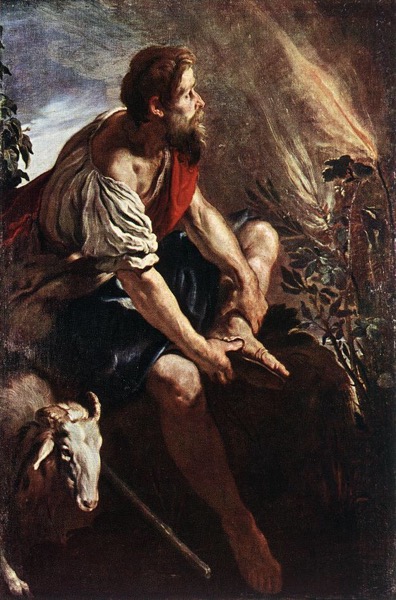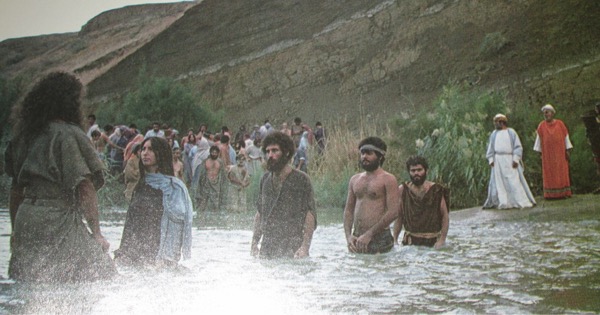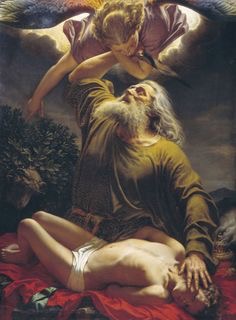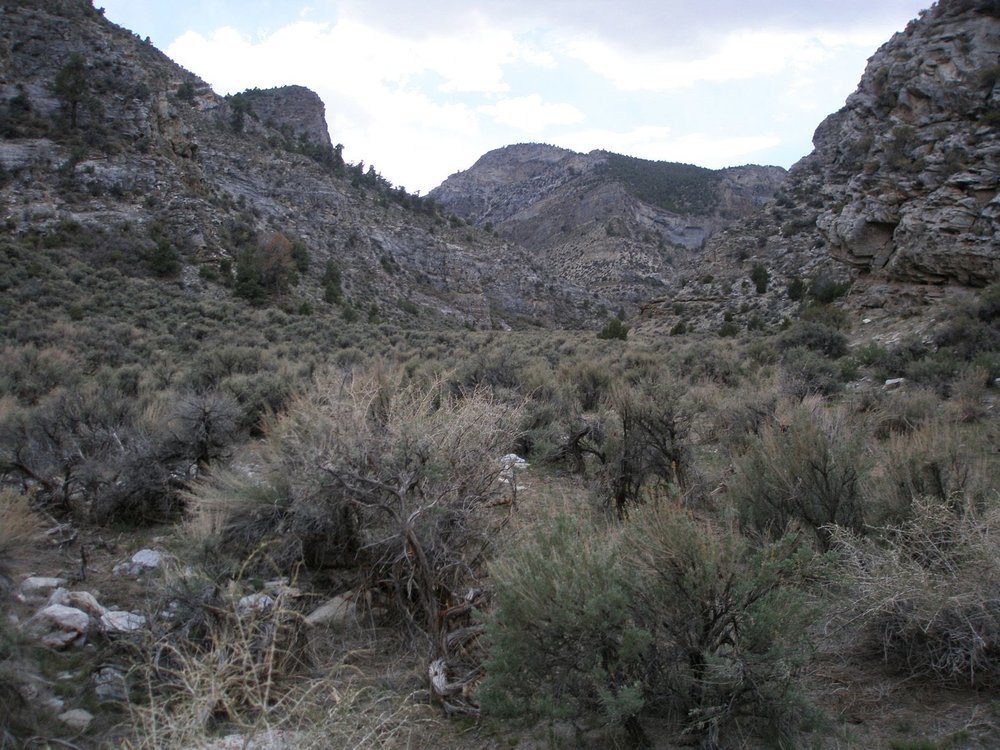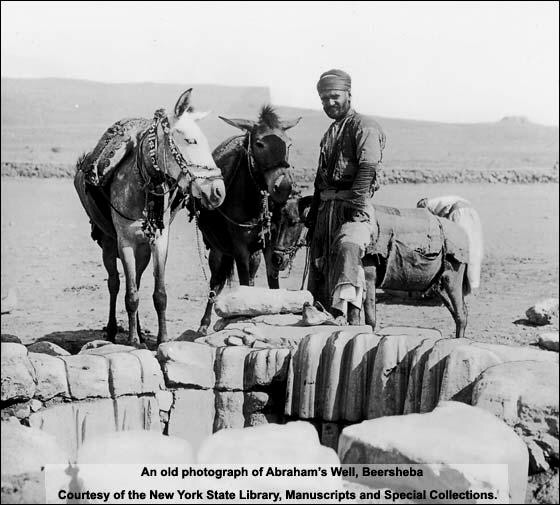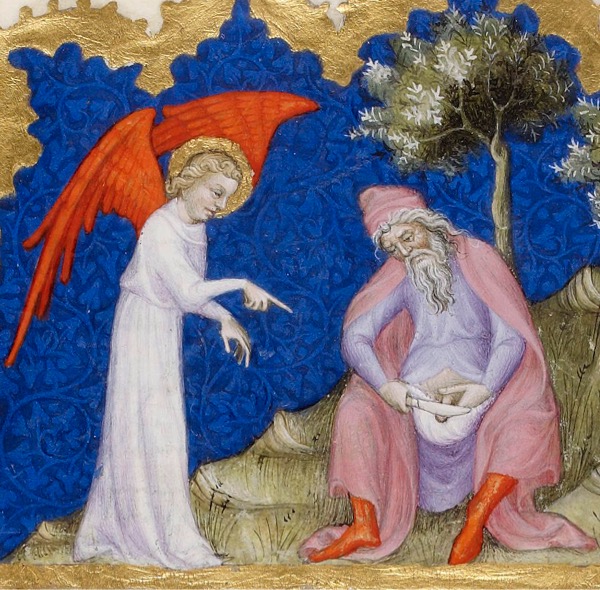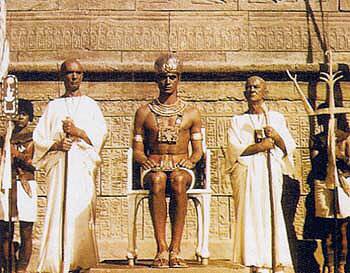ALIVE: Chapter 44 Moses' Midlife Miracle
/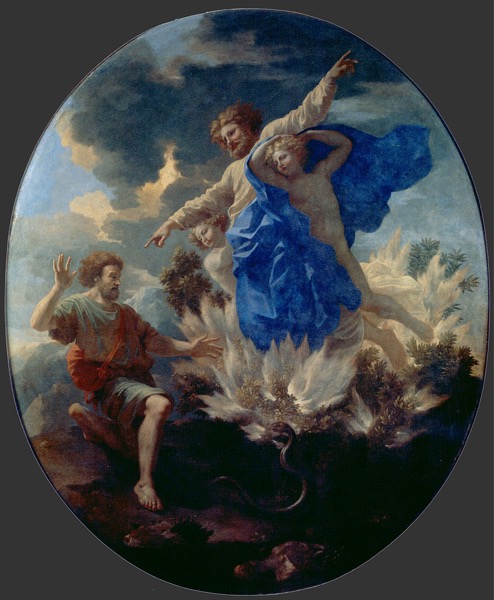
Overwhelmed, Moses had only imagined running away from the extinguished burning bush when he fainted. God was far from finished speaking to him.
"Gracefeld, Perambula, wake up this man that I may continue to instruct him!" ordered God.
Perambula spoke up. "Lord, I'm afraid that speaking with You was too much for him. He needs a moment to absorb the magnitude of Your presence. Let's be patient and let his subconscious process."
"I must agree my Lord." added Gracefeld in uncharacteristic defiance of God's command.
The two angels and God looked down at Moses laying barefoot and fast asleep in a fetal position.
"He looks so peaceful doesn't he?" said Gracefeld.
"Please wake him up Perambula; there is much to do and I am ready to get started."
"How can You be in a hurry after waiting so many centuries?" replied Perambula and quickly added, "my Lord!"
Without any help, or at least any perceived help from either angel Moses gradually opened his eyes to find himself still in front of the flaming bush. He quickly closed them again refusing to accept such a phenomenal reality and wishing only to flee back into his increasingly illusive dream.
"Moses!" bellowed God. "Stay with Me. This conversation is only the beginning of the wonders you will see and perform as My right hand."
Moses awkwardly propped himself to his feet while saying, "Lord God. I am a simple shepherd. Let me go and tend my flock. I know Pharaoh. He will never release the Hebrews."
Without responding to Moses' request God continued, "I know, however, that the king of Egypt will not let My people go unless compelled by a mighty hand. So I will stretch out My hand and strike Egypt with all My wonders that I will perform in it; after that he will let you go. I will bring this people into such favor with the Egyptians that, when you go, you will not go empty-handed; each woman shall ask her neighbor and any woman living in the neighbor’s house for jewelry of silver and of gold, and clothing, and you shall put them on your sons and on your daughters; and so you shall plunder the Egyptians.”
Perambula looked over at Gracefeld and said, "That will be the day! How can those spoiled Egyptians survive without their slaves?"
Then Moses, at the pace of cool honey, accepted the fantastic situation he was in, and said, “But suppose they do not believe me or listen to me, but say, ‘The Lord did not appear to you.’”
The Lord said to him, “What is that in your hand?”
He said, “A staff.”
And He said, “Throw it on the ground.” So Moses threw the staff on the ground, and it became a snake; and Moses drew back from it.
Then the Lord said to Moses, “Reach out your hand, and seize it by the tail”—so he reached out his hand and grasped it, and it became a staff in his hand— “so that they may believe that the Lord, the God of their ancestors, the God of Abraham, the God of Isaac, and the God of Jacob, has appeared to you.”
Moses looked at his staff and chuckled. He was amazed by what God did with his own staff. He looked up at the burning bush with a huge grin on his face, and then looked back at his wooden staff and tapped it on the ground twice. Indeed it was as hard as ever.
Again, the Lord said to him, “Put your hand inside your cloak.”
With the grin still frozen on his face, Moses put his hand into his cloak; and when he took it out, his hand was leprous, as white as snow. Moses gasped in horror and quickly looked up at the flaming bush for an explanation.
Then God said, “Put your hand back into your cloak”—so he put his hand back into his cloak, and when he took it out, it was restored like the rest of his body— “If they will not believe you or heed the first sign, they may believe the second sign. If they will not believe even these two signs or heed you, you shall take some water from the Nile and pour it on the dry ground; and the water that you shall take from the Nile will become blood on the dry ground.”
Perambula turned to Gracefeld and said, "Have you ever, since the creation of man, known God to speak so much to a person... who can hear Him? I confess Gracefeld, this alone is more astonishing to me than any of these magic tricks."
"Maybe so, maybe since Eden, but then neither you nor I went to Eden, so we wouldn't know. What God is about to do is probably important enough to defy the laws of nature." replied Gracefeld who was both irritated and offended by Perambula's use of the word magic.
"Freeing a few slaves?" questioned Perambula.
"Remember Perambula, these people that He wants to free, don't really know Him. God is about to introduce Himself to His children!" Tears welled up in Gracefeld' angel eyes to match Perambula's emotions. "You take knowing God for granted Perambula. Soon you will witness a facet of God that you have never seen."
While the angels chatted with each other Moses said to the Lord, “O my Lord, I have never been eloquent, neither in the past nor even now that you have spoken to your servant; but I am slow of speech and slow of tongue.”
Then the Lord said to him, “Who gives speech to mortals? Who makes them mute or deaf, seeing or blind? Is it not I, the Lord? Now go, and I will be with your mouth and teach you what you are to speak.”
But he said, “O my Lord, please send someone else.”
Perambula whispered, "This isn't going very well. This man doesn't even want to help God answer the prayers of his own people, of the mothers and fathers of abused children! What a coward of a man, what laziness, what a worm!"
Then the anger of the Lord was also kindled against Moses and he said, “What of your brother Aaron the Levite?"
Perambula surprised that God would offer to appease this coward rather than destroy him and find someone else, also wondered how Moses could have a brother since all the baby boys had been killed when Moses was a baby. Gracefeld heard Perambula's thoughts and shrugged. He assumed that this brother was in-fact a cousin, since God called him a Levite, a cousin who had been born in a remote village, closer to Midian where he first met the refugee Moses, a distance from the grasp of Pharoah's henchmen. Besides, the identity of this co-worker did not matter, neither to Gracefeld, nor to God who must have known this would happen and prepared for it.
Annoyed by the angels' side conversation, but aware that Moses could not hear them God continued, "I know that he can speak fluently; even now he is coming out to meet you, and when he sees you his heart will be glad. You shall speak to him and put the words in his mouth; and I will be with your mouth and with his mouth, and will teach you what you shall do. He indeed shall speak for you to the people; he shall serve as a mouth for you, and you shall serve as God for him. Take in your hand this staff, with which you shall perform the signs. Go.”
This time the flame of the burning bush sputtered until it was thoroughly extinguished. The bush rapidly returned to its facelessness. After several moments used to collect himself Moses tightly gripped his magical staff, turned his back on the bush and walked down the mountain gradually shedding the person he had been, a man of fear and doubt.
Perambula and Gracefeld helped Moses round-up his sheep and goats. Nevertheless, Moses didn't have time to ponder his new mission until he was back home. When he arrived his wife and sons greeted him cheerfully, but Moses was not ready to tell them about his conversation with the Voice in the burning bush. He needed time to ponder his brand new role as savior, as God's ambassador to the mighty king of his world. After supper, Moses announced to his wife that he would return in the morning, and grabbed a bedroll, and walked out of his boisterous home and into the still and silent desert, to a spot where he often went to think. Under the stars Moses looked back on his life, his extraordinary life from the earliest time he could remember, when he had to leave his loving mother and sister and go to live in the palace as the son of Pharaoh's daughter. He had cried for weeks, but she was patient and kind, often trying to distract him from his grief with marvelous objects, including his first puppy, his childhood companion.
Early the next morning, fortified with newfound courage, Moses went back to his father-in-law Jethro and said to him, “Please let me go back to my kindred in Egypt and see whether they are still living.” And Jethro said to Moses, “Go in peace.”
A few days later, the familiar Voice of the Lord called out to Moses in Midian, “Go back to Egypt; for all those who were seeking your life are dead.” So Moses took his wife and his sons, put them on a donkey, and went back to the land of Egypt; and Moses carried the staff of God in his hand.
And the Lord said to Moses, “When you go back to Egypt, see that you perform before Pharaoh all the wonders that I have put in your power; but I will harden his heart, so that he will not let the people go.
Hearing that Perambula flew over to where Gracefeld was to say, "Why is God hardening Pharaoh's heart to do the opposite of what God wants him to do? This doesn't make sense!"
Gracefeld often marveled at Perambula's stupidity, but being an angel Gracefeld knew that tolerance and patience were essential and replied, "He knows that the journey from slavery to freedom will be long and difficult, requiring much faith and perseverance. The people will be tested over and over again to build their strength and endurance. They will need the memory of marvels to cling to, to remind them that God, their God and Father, is with them guiding them, not only on the physical journey, but on a psychological and spiritual aspects of the journey to a promised land, that only you and I know is lightyears into the future.

